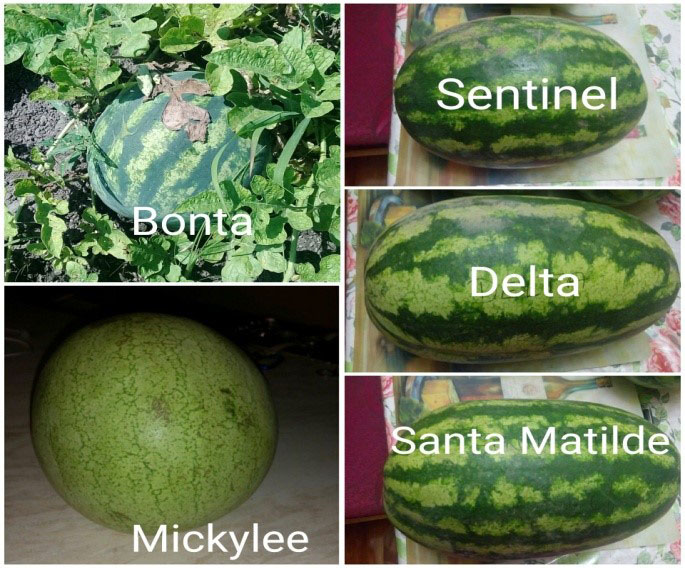At least thrice monthly, the local company, Biso Investments exports shipments of fresh fruit and vegetables, including pineapple, watermelon, ground provision, and pumpkin to Barbados under an arrangement with two supermarkets on the CARICOM island.
Leading the clutch of agricultural exports is watermelon, the sweet, firm red pulp of the Mickylee variety fruit being a favourite amongst Bajan consumers. Every month Bio Investments purchases between 60,000 and 70,000 pounds of watermelon from local farmers for export, Anil Singh, Bio Investment’s General Manager says. He says that his Bajan consumers strongly favour the size, texture and colour of the Mickylee. Besides, it has a relatively long shelf life, a valuable virtue in the export trade. “Usually we ask the farmers to pick the watermelons two days before we collect for shipment because the cargo spends several days in storage whilst heading to Barbados,” Singh says.
This is the fourth year of what Singh says has been a mutually beneficial arrangement with local farmers, the investment in cultivation being undertaken in the certainty of a ready market. Still, the constant and high demand for watermelon means that the fruit can become scarce though the long-term arrangement between Bio Investment and the farmers means that prices only occasionally become erratic.
Singh says that watermelon prices can range between $30.00 per pound to $90.00 per pound. He says that the company must sometimes work its way through the barrier of higher prices since it is keen to hold on to a steady and profitable market.
Market trends in the fruit and vegetable trade is one of the interests of the National Agricultural Research and Extension Institute (NAREI) and NAREI is currently paying an interest in the watermelon market with a view to applying science to crop diversification methods that ensure the resilience of high-value crops in an era of changing environmental conditions.
Diversification increases the resilience of crops by fostering suppression of pests and diminishing pathogen transmission and it is with these considerations in mind that NAREI has embarked on the introduction of new varieties of watermelon into the cultivation stream.
In recent years, several new varieties have been evaluated to better understand considerations that include germination percentage, flowering, fruiting, harvest time and total harvest per hectare. Data collected from these trials focuses on creating “plant descriptors” for new varieties.
Trials have been undertaken at NAREI’s Demonstration farm Mon Repos, and at Fort Wellington, Hope Estate and Mahaica with a number of new varieties including Sangria, Greybelle, Santa Matilde, Boya, Delta, Bonta, Sentinel and Sugar Doll. The results from these trials indicate that the Bonta variety could challenge the Mickylee on the export market given both its near identical growth parameters and its market acceptability. As in the instance of the Mickylee, the Bonta is harvested within seventy-three days of seeding and has a total harvest yield per hectare of 71.4 tonnes with fruit weighing as much as 7.2 kilograms. NAREI is currently conducting a study on Bonta’s production costs compared with Mickylee’s.
Diversification work with watermelons is important to exporters like Biso Investments since it offers the opportunity of introducing new varieties to the market, though, Singh says, that the company is not unmindful of the influence of habit.






